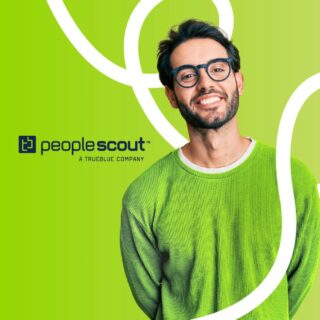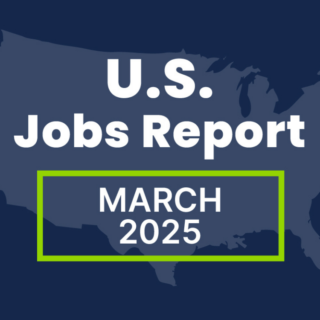Around 15 to 20 years ago, the first millennials entered the workforce – frustrating and sometimes frightening the baby boomers and Gen Xers who hired and managed them. Since then, the world of work changed, and millennials grew up and advanced in their careers. In that same time, Kathryn Minshew moved from her roles at McKinsey & Company and the Clinton Health Access Initiative and founded The Muse, a career platform headquartered in New York City and used by more than 75 million people to research companies and careers.
Kathryn also authored “The New Rules of Work,” which made it to The Wall Street Journal’s (WSJ) national bestseller list. She has spoken at MIT and Harvard, contributed to the WSJ and Harvard Business Review, and appeared on TODAY and CNN. She has been named to SmartCEO’s Future50 Visionary CEOs and Inc.’s 35 Under 35. Additionally, The Muse was named one of Fast Company’s 50 Most Innovative Companies in the World in 2018.
Kathryn is an expert on the workforce transformation she observed and helped drive as a millennial herself. But now, the process is beginning all over again as Gen Z starts entering the workforce. We talked with Kathryn about how these new workers will influence the way companies attract and retain the best talent.
What are the biggest similarities and differences you see between current workers and those who are just now entering the workforce?
It’s a really interesting time right now because the workplace is in flux. While I’m not a big believer in the idea that the millennial generation is fundamentally different, there are a few trends I’m seeing in The Muse’s community and the employers we work with.
First, there‘s a strong interest in flexibility and work-life balance. The younger generations are pushing employers to recognize their work based on output and not the number of hours sitting at a desk. I actually think that change benefits us all.
Secondly, a lot of younger workers are willing to relocate for the right job. We surveyed The Muse community, which is very young and diverse with two thirds under age 35, 55% women, and 50% nonwhite. We asked them, “Would you relocate and consider moving for the right company and role?” An overwhelming number – 89% – said yes.
As millennials went from entry-level workers to the biggest cohort in the labor market and now into leadership roles, we saw the conversation change. How do you expect the conversation about Gen Z at work to change?
There’s one pattern I’m very confident will play out, which is that we’ll see a bunch of people predicting the end of the workplace as we know it. Then, over time, some of the hysteria will quiet down, and people will realize that we’re all fundamentally more similar than we are different. A few years ago, there was a lot of, let’s just say, pulling of hair and gnashing of teeth about millennials. Now, many of those same millennials are managers and some of them are becoming executives.
The workplace has changed. Companies are forced to compete for talent. There is a bigger emphasis on connecting the overall purpose and mission of a company with the individual roles of workers.
When I look at the changes that I believe we’ll see with Gen Z, there’s the classic one – which is that Gen Z is very mobile first. So, I think we’ll see less and less tolerance for legacy technology products and more of a push for the adoption of consumer-grade products. Gen Z is starting to look for workplace tools that are built on data and personalized for their needs.
How will employer branding change?
I think we’ve evolved through a number of phases of employer branding, starting with what I call phase zero, where companies just posted jobs online without any marketing or information. Then, phase one was stock photos and companies trying to pretend they were perfect, using jargon like, “we’re a team of innovators committed to excellence.”
Now, we’re in phase two, in which companies are realizing the need to be more authentic. With Gen Z, we’re going to see an increasing trend toward personalization. Platforms and tools that can provide a more personalized experience are going to win. That’s something I’m very focused on at The Muse.
I think there are platforms out there today that deliver volume, but give you very few opportunities to really build a relationship with talent and explain your company, your values and your opportunity. My money is on the platforms that are allowing different channels for candidates and job seekers to research companies and for employers to build relationships – and, of course, I count The Muse among them.
Employer brand is ultimately just brand, right? It’s not like you get to have a consumer brand and employer brand that don’t interact with each other. Employer brand has the potential to be powerful, but only if you recognize that it’s a piece of your larger brand and the lines between your applicants, candidates, employees, customers and users are blurring in the modern world.
Ultimately, I think the holy grail for employer brand is going to be giving candidates more information and a better experience up front. That leads to tangible business results through better and longer-retained hires.
How will employers change their retention strategies for Gen Z?
Retention is directly linked to how much information people receive and how accurate that information is before they come through the door. We’ve seen companies that work with The Muse increase retention when they’re more transparent about what it’s like to work there.
Many people earlier in their careers are looking for clarity and guidance around what the future holds. Companies that are successful in retaining millennial and Gen Z employees often lay out very explicit career paths. Employees can see what milestones they need to hit to get promoted to the next level and what those steps look like. By documenting a clear career path, younger employees can understand what the future will look like if they invest in your company.
If you had to boil this entire conversation down to one piece of advice for employers, what would that advice be?
When I started The Muse, I had this deep belief that both job seekers and employers would be better off if they found matches based on fit. Even the same person might look for different things at different points in their career. I want The Muse to help create fit – to help individuals research companies and careers, and help employers hire great people on the strength of their employee experience and employer brand.
If I had to pick just one piece of
advice on how to do that, I would say focus on storytelling. Humans love
stories; we can connect with them. So, think about employee storytelling – whether
that’s telling stories on your career site, through The Muse or through another
channel. The more you can communicate the uniqueness of your opportunities and
your organization through the real human stories of people who work there, the
more successful I believe you’re going to be.


